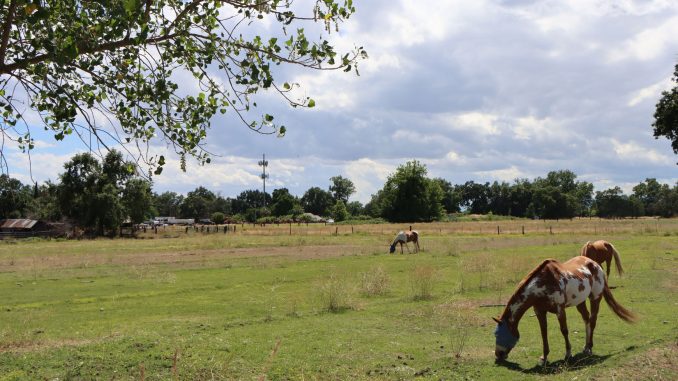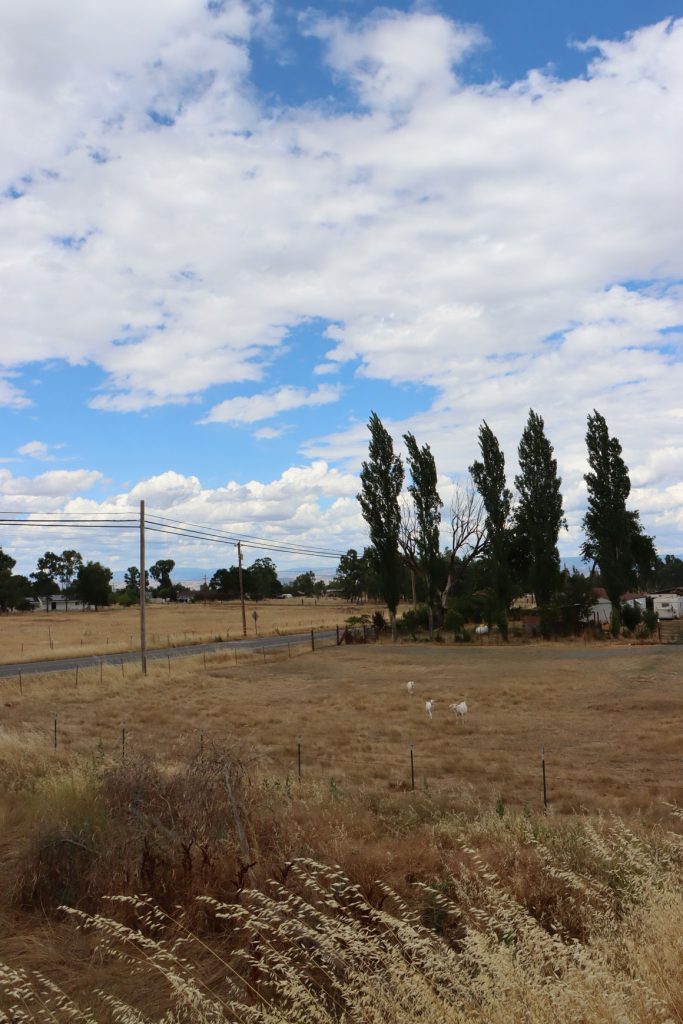
Under SB 1383, new organic waste regulations have begun to take effect throughout California. However, some rural counties are exempt to give them time to assess and address their unique challenges in recycling organic waste.
For more than 20 years, Larry Sweetser—of Sweetser & Associates, Inc.—has acted as a consultant for Rural Counties’ Environmental Services Joint Powers Authority. This local government agency advocates for their rural members, including Tehama County, and helps them navigate and comply with state and federal solid waste management regulations.
“I can help a county with an issue,” says Sweetser, “but sometimes we need to get the requirements clarified at the regulatory level—trying to make sure those requirements take into account rural issues.”
Though SB 1383’s mandate to divert 20% of edible food to people and food banks is a statewide goal, Sweetser says the onus of reducing overall organic waste by 75% ultimately falls to the counties.
“Rural areas are primarily characterized as remote areas that don’t have the population, don’t have the tonnage, the resources, or funds to implement programs like large cities,” Sweetser says.
Curbside waste collection—common for urban areas and big cities—isn’t always present throughout rural counties, Sweetser says. Instead, residents may pay out of pocket to self-haul waste to a landfill or simply burn it.
For cities, adding organic waste collection may mean an extra bin for residents and a new processing stream for waste, but Sweetser says meeting SB 1383’s regulations will require many rural counties to start from scratch—creating waste collection and processing programs, checking compliance with in-field assessments, and keeping records of the entire process.
With the cost of collection and processing programs and equipment—such as waste bins and trucks—comparable regardless of which county is paying, Sweetser believes residents will see higher personal price tags, as some already do with landfill fees.
“When you look at some of the cities, implementing a program costs pennies per person,” Sweetser says. “Whereas rural areas with a smaller populations, its dollars or tens of dollars per person.”
Even when paid for, the logistics of rural collection vary greatly from its urban counterpart.

Rows of suburban houses may see a recycling truck stop every 20 feet to pick up a bin before going to a local processing facility. Conversely, Sweetser says, rural residents may live a mile or 5 miles apart—sometimes on dirt roads incapable of supporting heavy trucks—in a county with no processing facilities.
Additionally, the operations need to be staffed and many rural public works employees wear multiple hats, Sweetser says. He can recount instances where an employee’s main job is road maintenance or flood control but waste management has been added to their plate, for lack of staff.
To mitigate the impact of SB 1383 on rural counties, Sweetser helped draft criteria-based exemptions that took into account these unique challenges.
For counties with a population below 70,000—such as Tehama County—a five-year exemption can be granted, excusing the county from providing and overseeing organic waste collection and processing programs.
Exemptions for organic waste collection can also be granted for residents living above a 4,500 foot elevation or for census tracks containing fewer than 75 people per square mile.
Lastly, commercial businesses can receive a de minimis waiver if they demonstrate they do not generate a minimal level of organic waste.
However, Sweetser says, proving grounds for an exemption can be confusing and, once an exemption is granted, it can still be unclear what comes next.
This is the case with Tehama County, whose growing population of roughly 65,000 is approaching the point where the county will no longer be exempt.
“They’re slightly under the population limit and one unknown is if they go over the population exemption, then what happens?” Sweetser asks. “Do they have to come into compliance immediately? Or wait for the exemption to time out? When that exemption expires, there’s no grace period.”
Still, Sweetser says getting ahead of the regulations—as Tehama County is doing—can lessen the impact of compliance and deliver real value to rural counties.
“Landfills are a finite resource for us,” Sweetser says. “Trying to haul garbage 10, 15 miles away gets very expensive, so keeping those landfills available for the material that needs it is an economical issue and fits into the bigger scheme of recycling.”
And, Sweetser notes, the state’s goal of diverting 20% of edible food to hungry people and food banks stands to benefit rural counties, which he says tend to be home to people of lower incomes.
With exemptions in place and those such as Sweetser advocating for rural interests, counties such as Tehama will be better prepared to do their part, their way.

For more information on SB 1383 and how it will affect Tehama County residents, visit www.tehamacountylandfill.com. This article was funded by a grant from CalRecycle.

